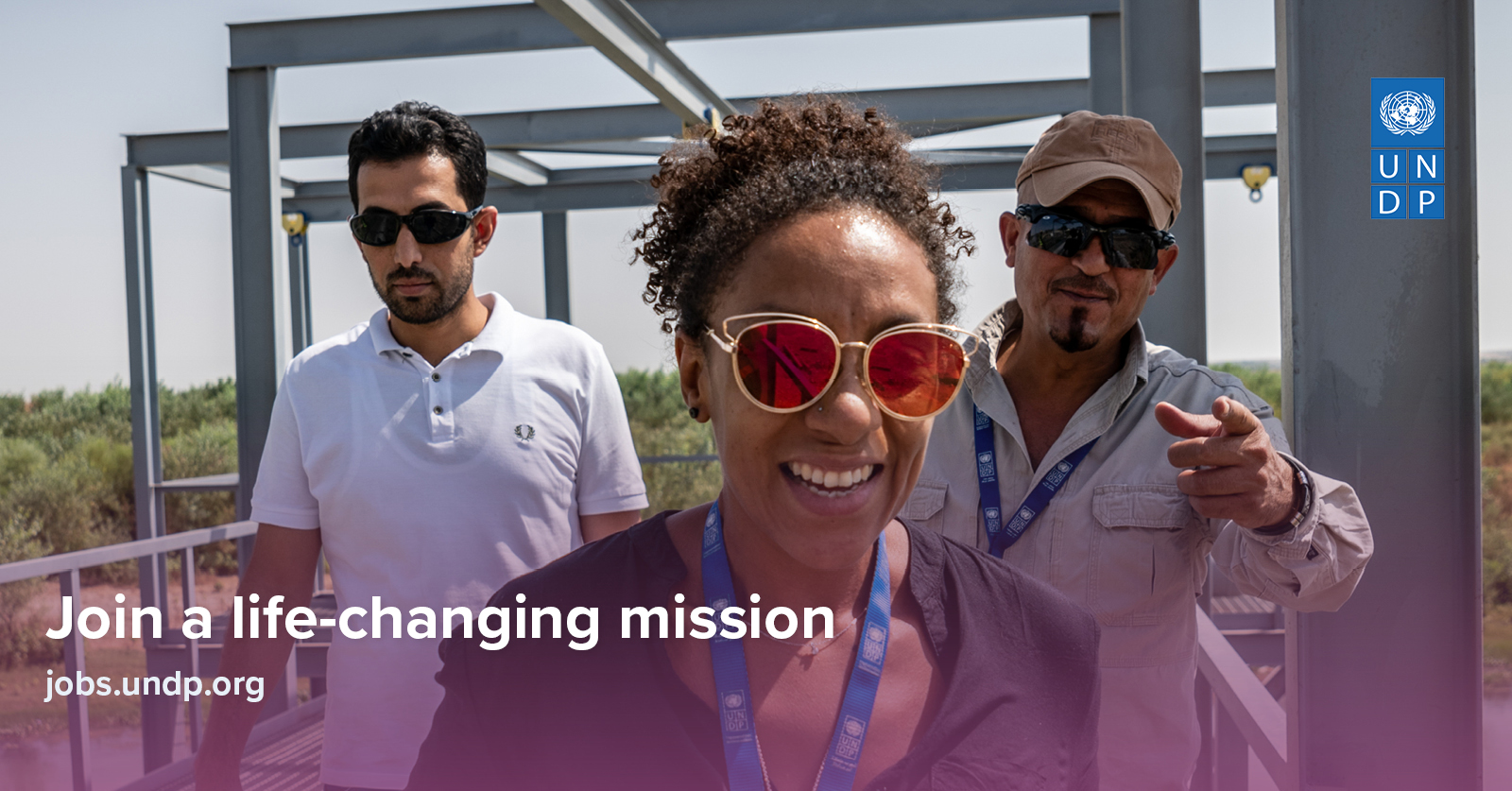
Background
Ethiopia is currently facing unprecedented challenges from impacts of multiple climate-related risks and disasters such as conflicts, drought, flood, and landslides, among others. The country’s exposure to a wide range of hazards (both natural and human-made) is associated with its diverse geo-climatic and socioeconomic conditions. To this end, vulnerability of communities is driven by its weak economic base, high population growth, scarcity and degradation of natural resources, climate variability, poor infrastructure, and dependence on rain-fed agriculture, among others. Disasters have significantly impacted the economy of the country and the livelihoods of millions of its people.
Ethiopia’s Disaster Risk Management Commission (EDRMC) has passed through a series of reform processes for decades now. As part of this process, currently the commission has initiated a new DRM policy, which is pending the endorsement of the National Council of Ministers. Apart from this, in the year 2023, the commission endorsed a roadmap to Multi-hazard Impact-based Early Warning Early Action System (MH-IB-EW-EAS) Framework. The MH-IB-EW-EAS integrates hazard information with risk analysis to provide meaningful early warnings that allow governments, communities, and individuals not only to understand the risks related to impending events but also to act early and respond to disasters to minimize negative impacts. The system strengthens cooperation among the various agencies involved as well.
The intended outcomes and outputs of the MH-IB-EW-EAS are well aligned with Ethiopia’s global commitments, including the Sendai Framework on Disaster Risk Reduction (SFDRR) and The Paris Agreement. Moreover, the key components of the roadmap mirror to the UN Secretary General’s initiative on Early Warnings for All (EW4ALL) initiative. Focusing on four key outcome areas, namely, on Risk knowledge; monitoring and forecasting; dissemination and communication; and preparedness and response, the roadmap ultimately seeks to drive change on risk reduction, governance, and mitigation. Building on progress, UNDP’s focus over the next couple of years will remain to be strengthening the government’s capacity at national and sub-national levels on climate and disaster risk governance/management, Multi-hazard Early Warnings, mainstreaming disaster risk management, recovery and resilience building.
Objective:
The UNDP Ethiopia Country Office, Climate Resilient Environmental Sustainability Unit (CRES) is looking for an intern who is motivated, independent, and ready to learn from the works of the unit at UNDP Country Office in Addis Ababa. The Internship will offer graduate-level students the opportunity to acquire direct exposure to UNDP’s work. The programme is designed to complement development-oriented studies with practical experience in various aspects of multilateral technical cooperation. It gives students and recent graduates the opportunity to get a taste of UNDP’s community and mission. The Intern is thus expected to participate in a variety of tasks and work with the different thematic areas along with the staff members and the Team Leader for the Unit.
Duties and Responsibilities
The main objective of the assignment is to assist the UNDP Country Office Climate Resilient Environmental Sustainability Unit portfolio on DRM, Early Warning, environmental, and climate thematic areas. The intern will work under the guidance and technical supervision of the CRES unit Team Leader. He/she will also work closely with the UNDP Country Office – DRM Specialist and other team members.
Under the supervision of the Team Leader of the CRES Unit, the Intern is expected to perform the following key duties and functions:
- Assist in the implementation and management of project different DRM, Early Warning, and climate-related projects.
- Support the unit and Implementing Partners on the Implementation of the Unit’s projects in terms of tracking results and success stories.
- Assist and contribute to the drafting, review and/or revision of the ToRs and other technical documents related to the project activities.
- Prepare various written outputs, as may be required (e.g. draft background papers, concept notes, briefing notes and talking points).
- Contribute to the creation of strategic partnerships and implementation of the resource mobilization strategy.
- Assist in the preparation of substantive briefs on possible areas of cooperation, and identification of opportunities for initiation of new projects.
- Assist the unit in its working relationships with other UNDP units – procurement, finance, HR, and others for smooth implementation of project activities with the support of the unit.
- Assist in planning unit and other meetings within the unit and with partners also by producing and documenting proceedings/minutes of those meetings.
- Support to coordinate reporting on Climate and Environment portfolio (e.g., annual reports, progress reports, donor reports, annual reports, etc.).
- Assist and contribute to the preparation of project documents or concept notes based on the needs expressed by actors at national level, lessons learned and good practices.
- Assist in the preparation of briefing notes, updates and talking points.
- Support to enhance visibility of the CO project action on DRM, climate, risks and resilience in social media and other platforms such as websites, by ensuring regular updates and maintaining the quality and relevance of content.
- Prepare logistics, ToR and Concept Note for missions.
- Facilitate knowledge building and management; and provide support on keeping records of activities.
- Any other duties as required by the unit.
Learning Objectives
- Interest and motivation in working in the work of the United Nations and having a personal commitment to the ideals of the Charter in an international organization.
- Increased understanding of UNDP’s work and the UN system.
- Improved knowledge and skills in disaster risk management.
- Improved knowledge and understanding of administrative and operational rules, policies, and regulations of UNDP.
- Build and develop professional relationships with UNDP colleagues and colleagues from other UN agencies.
- Work as a team member in a multicultural setting
Competencies
Corporate Competencies:
- Demonstrates integrity by modeling the UN’s values and ethical standards.
- Demonstrates openness to change and ability to receive/integrate feedback.
- Works collaboratively with team members by sharing information openly and displaying cultural awareness and sensitivity.
- Positive and results-oriented attitude.
Technical Competencies
- Good analytical skills in gathering and consolidating data and research for practical implementation.
- Outgoing and initiative-taking person with a goal-oriented mindset.
- Communicates effectively when working in teams and independently.
- Good in organizing and structuring various tasks and responsibilities.
- Excellent computer skill (Microsoft Office and software applications).
Other competencies and attitudes:
- Displays cultural, gender, religion, race, nationality, and age sensitivity and adaptability.
- Excellent interactive and interpersonal skills, and the ability to work in a multicultural environment and beliefs/backgrounds.
- Respond positively to feedback and differing points of view.
Required Skills and Experience
Interns are selected on a competitive basis and the following minimum qualifications are required:
- Applicants must be enrolled (or have recently graduated from) in a postgraduate degree programme (such as a master’s programme, or higher) Or have recently graduated with a first-level university degree related to Disaster Risk Reduction, Climate Change, Natural Resource Management, Environmental Science, or other relevant fields and must start the internship within one-year of graduation.
- Applicants to the UN Internship Programme are not required to have professional work experience. However, a field of study that is closely related to the type of internship that you are applying for is required.
- Ability to work for consecutive 6 months.
- Interest in working on disaster risk management, climate and environment-related issues.
Languages
Fluency in oral and written English and Amharic is required.
Application
Interested applicants must duly complete the UNDP Internship application form and submit the following documents online.
- CV and cover letter (in English)
- Qualified female candidates are strongly encouraged to apply!
* If you meet any of the above criteria, please indicate which one and attach proof to the application. Please note that you will have to provide an official certificate at a later stage.
Job Features
admin
Website: https://www.lapojap.com













